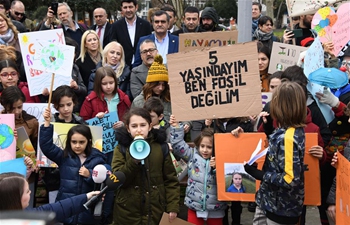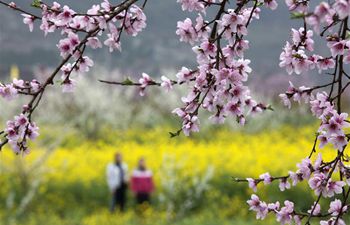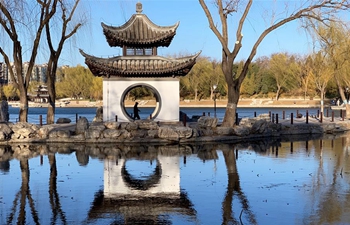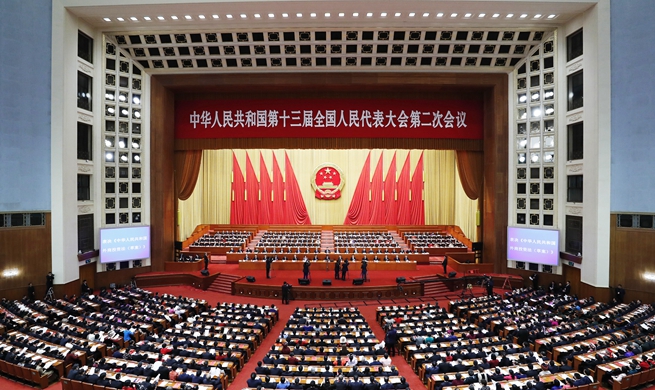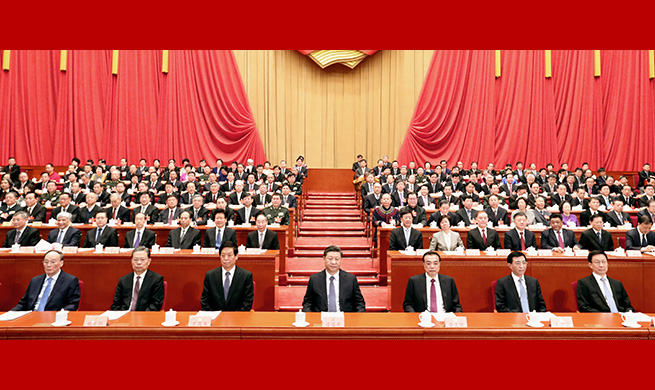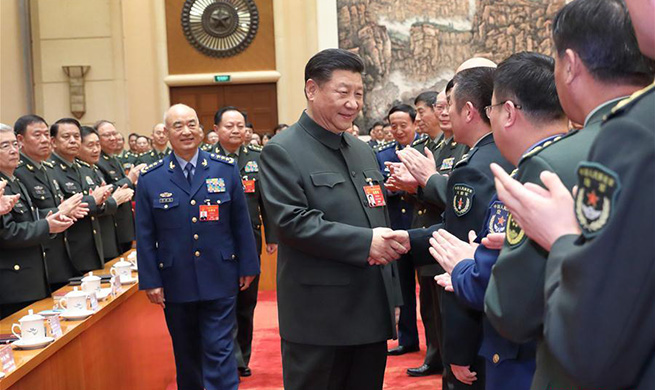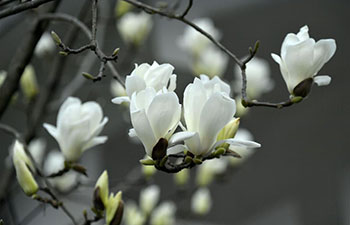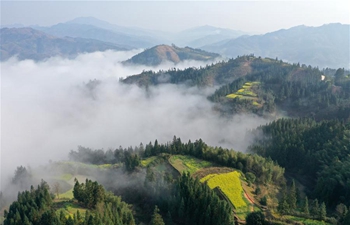by Xinhua writer Lyu Tianran
BUJUMBURA, March 16 (Xinhua) -- Burundian farmer Evrard Ndayikeje has recently won an award given by the Chinese Embassy here for those who have a high production of Chinese hybrid rice in Ninga village in northwestern Burundi.
The yield of Ndayikeje's rice field reached some 11 tons per hectare in the last season. But before he learned rice-growing techniques from Chinese agricultural experts, he could only harvest three tons per hectare.
The Chinese government has dispatched four agriculture expert groups to Burundi since 2009. The current group comprises nine members -- seven agriculture experts and two translators.
They introduced Chinese hybrid rice to the central African country and started to grow the species in a roughly 48-hectare field in Ninga village in 2018, bringing together some 130 families and over 1,000 people to join the program.
"They changed my life in a short time," said Ndayikeje, who was one of the participants. "Before I met the Chinese experts in 2016, I didn't have work for two years after graduating from university, and I grew traditional rice on my family's land, but didn't have much production and didn't have money," the 29-year-old said.
Chinese experts hired Ndayikeje as their assistant and taught him how to grow Chinese hybrid rice. Afterwards, he was able to teach farmers from other villages to do the same.
"I got married one year later and was financed by the money earned from growing Chinese hybrid rice. I have my own house now," he said.
Because of his ability to grow rice, the Burundian government employed him as a member of the national committee for the development of the environment, agriculture and livestock in Bubanza province, where Ninga village is located.
After reaping a good harvest in the first season that concluded in February, the village has started the second season's demonstration production, said Yang Huade, chief of the Chinese agriculture experts group.
The average production reached 10 tons per hectare in the first season, increasing from 4 tons per hectare before, Yang said.
To help Burundian farmers become self-reliant in growing Chinese hybrid rice, the Chinese experts cooperated with the Burundian government in helping villagers establish a fund which pools part of farmers' incomes from growing rice to buy seeds, fertilizers and chemicals for new production.
Besides training farmers, the experts also train government officials, agricultural technicians and researchers in the agricultural sector to ensure technical support.
To serve the Burundian farmers better, 55-year-old Yang and his fellows spend 20 days every month on average in different fields across the country.
"Our farmers have a good production now. When we can have that production in the whole country, Burundi can be developed," said Deo-Guide Rurema, Burundian minister of environment, agriculture and livestock.
Burundi wants to continue its agricultural cooperation with China and promote cooperation in other fields including vegetable production, the minister said.
China will further push forward the agricultural development of Burundi in line with the needs and the actual situation of the country, said Chinese Ambassador to Burundi Li Changlin.
